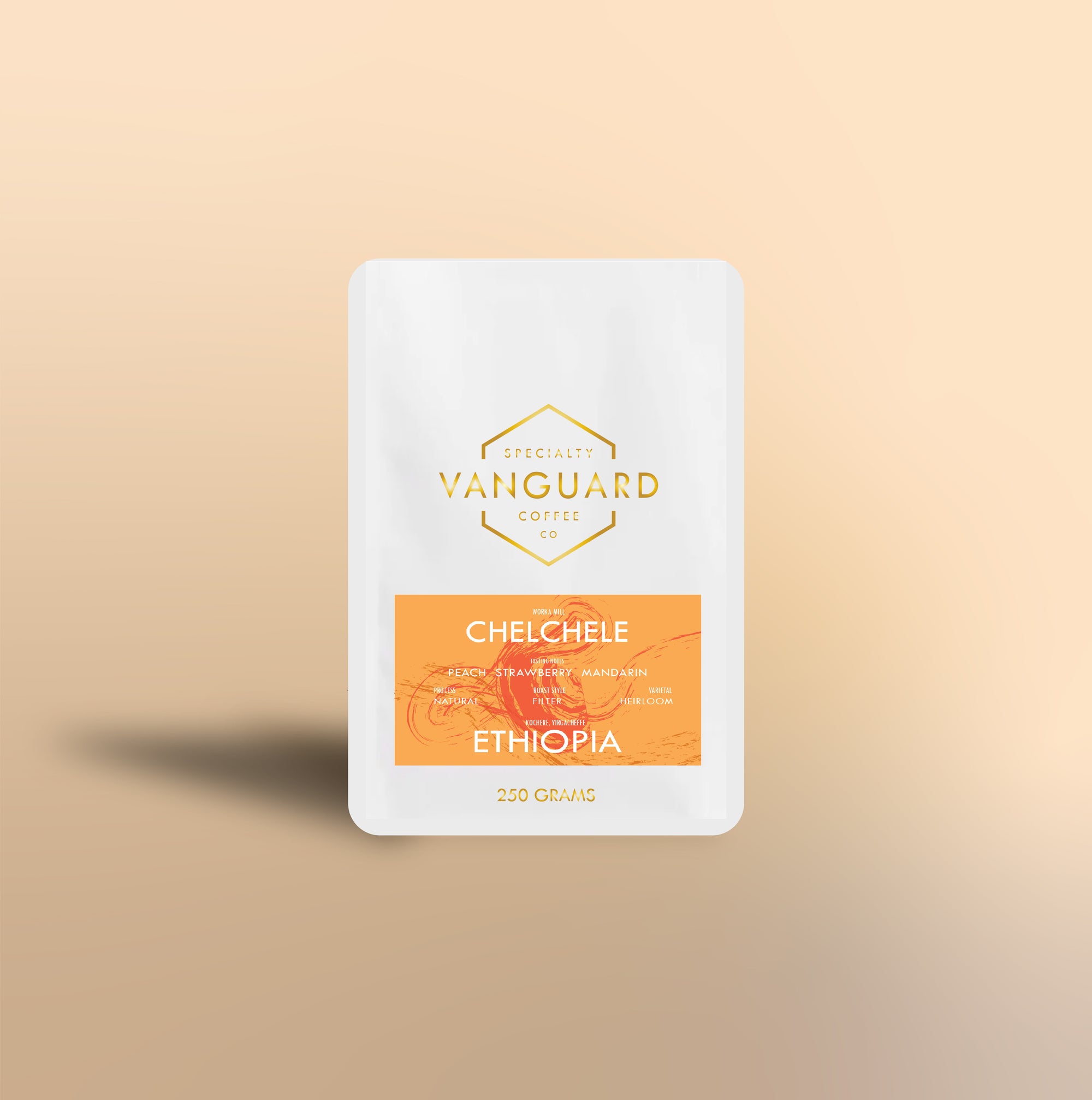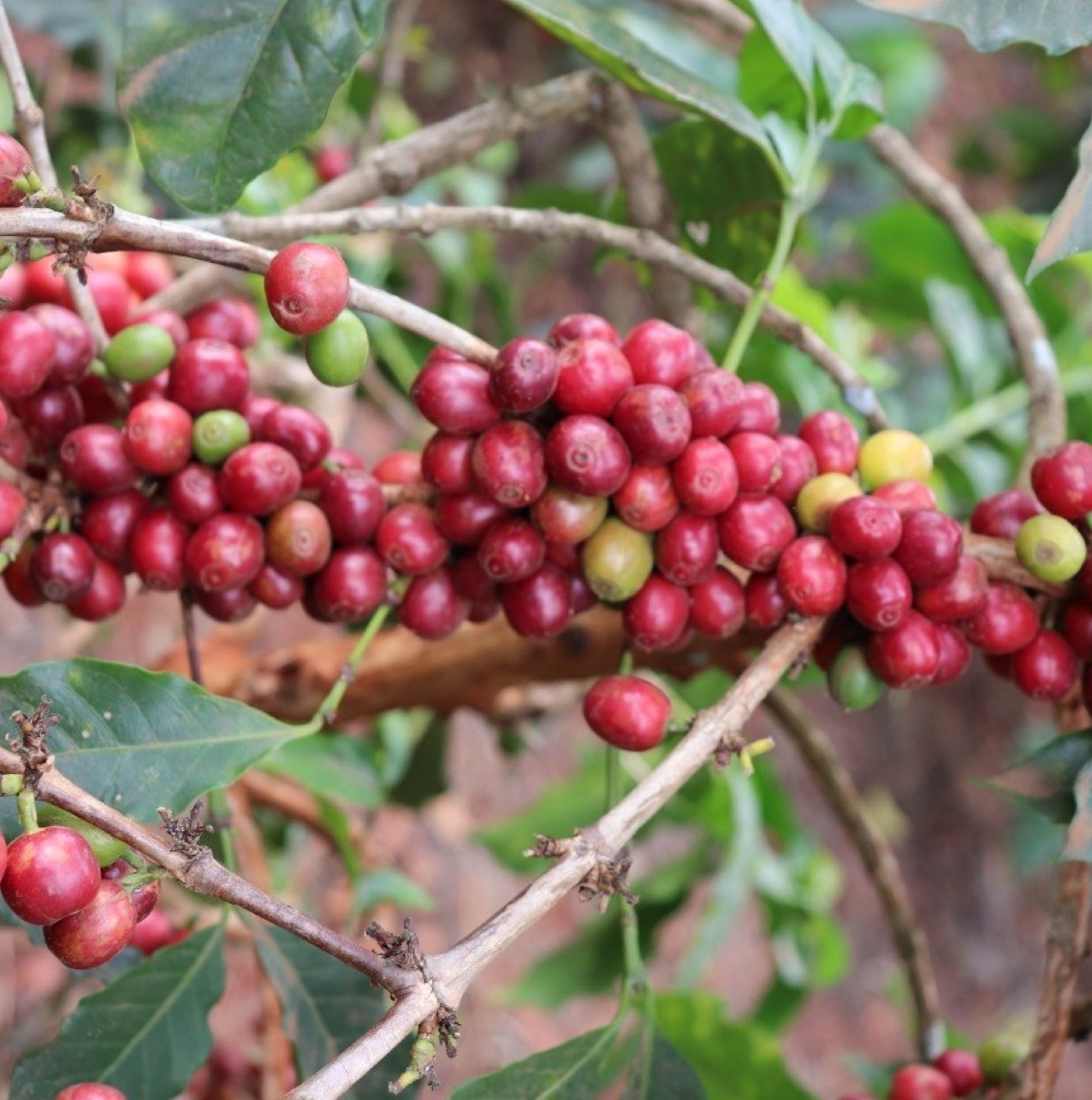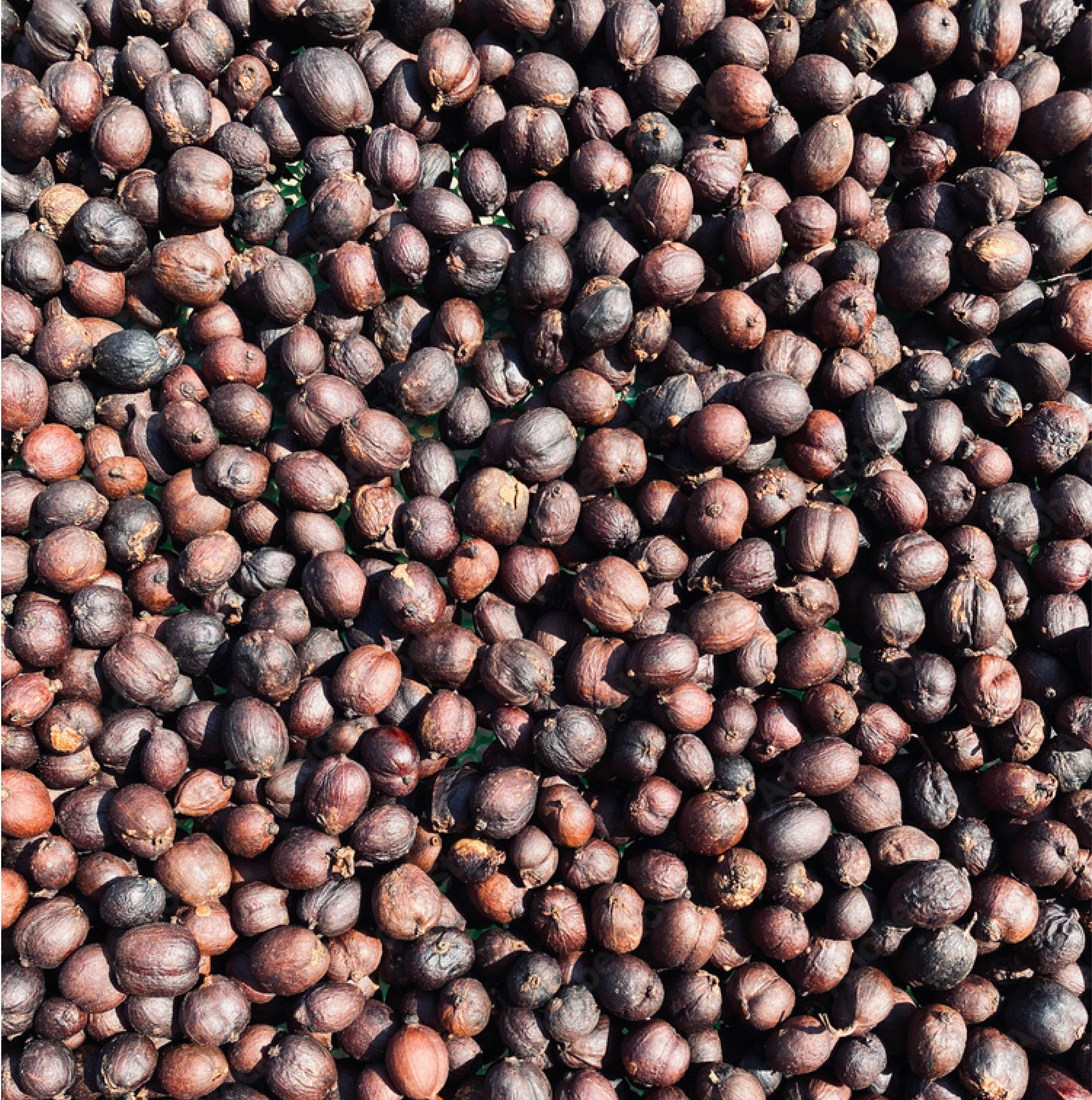




Ethiopia Chelchele Natural - Filter Roast
TASTING NOTES
Strawberry
Peach
Mandarin
ABOUT THIS COFFEE:
The natural processed counterpart to the washed Halo Beriti, this coffee is a stunning representation of the natural Ethiopian profile.
Juicy fruit notes, clean sweetness and even a subtle florality.
Juicy fruit notes, clean sweetness and even a subtle florality.
